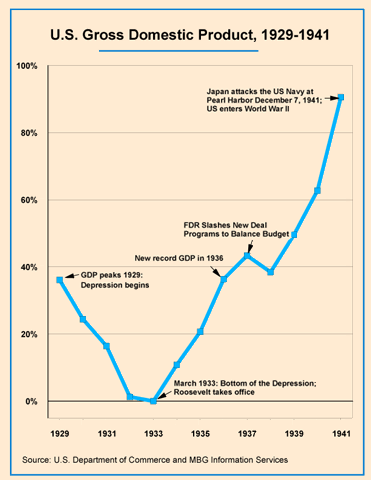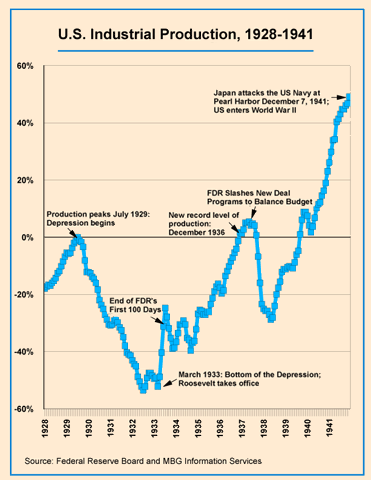Fair enough. Thanks for the balanced perspective, Seamus.
A recent Nobel laureate in economics weighs in ...
A not-so-funny thing happened on the way to economic recovery. Over the last two weeks, what should have been a deadly serious debate about how to save an economy in desperate straits turned, instead, into hackneyed political theater, with Republicans spouting all the old clichés about wasteful government spending and the wonders of tax cuts.
It’s as if the dismal economic failure of the last eight years never happened — yet Democrats have, incredibly, been on the defensive. Even if a major stimulus bill does pass the Senate, there’s a real risk that important parts of the original plan, especially aid to state and local governments, will have been emasculated. [...]
As the great American economist Irving Fisher pointed out almost 80 years ago, deflation, once started, tends to feed on itself. As dollar incomes fall in the face of a depressed economy, the burden of debt becomes harder to bear, while the expectation of further price declines discourages investment spending. These effects of deflation depress the economy further, which leads to more deflation, and so on.
And deflationary traps can go on for a long time. Japan experienced a “lost decade” of deflation and stagnation in the 1990s — and the only thing that let Japan escape from its trap was a global boom that boosted the nation’s exports. Who will rescue America from a similar trap now that the whole world is slumping at the same time?




 Reply With Quote
Reply With Quote




 . Paulson himself admitted he couldn't get his mind around the problem, nor could Greenspan. When you hear them say "We don't know how to value the losses", they're not saying "we don't know how much the value has shrunk". They're being literal. They have no earthly idea how to value some of these tools.
. Paulson himself admitted he couldn't get his mind around the problem, nor could Greenspan. When you hear them say "We don't know how to value the losses", they're not saying "we don't know how much the value has shrunk". They're being literal. They have no earthly idea how to value some of these tools.









Bookmarks